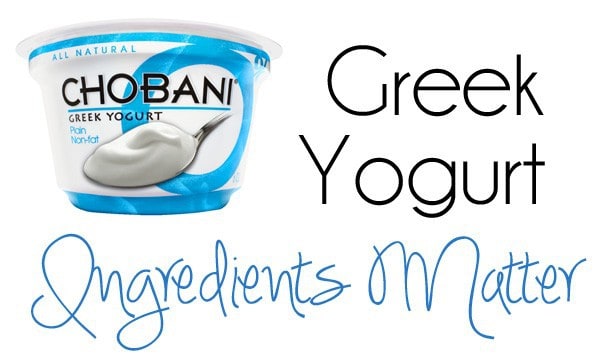Introduction
Greek yoghurt is a type of traditional yoghurt that has had all of the whey extracted from the milk through filtration. A heavy, creamy dairy products with a high nutritional concentration is the end product of this method. All of the milk used in the classic Greek yoghurt recipe comes from cows or goats that are fed on natural grass. Compared to regular yogurt, this has a little more acidic flavor and a velvety texture.
Health Benefits of Greek Yogurt
Greek yogurt has several nutrients that make it potentially beneficial for your health. These include:
- Calcium
- Protein
- Probiotics
- Iodine
- Vitamin B-12
The following are some possible health advantages of Greek yogurt:
Improve Digestive Health
Probiotics, or living bacteria, are added to some kinds of yogurt after it has been pasteurized or were included in the starting culture. When eaten, these might help with digestive health. Pasteurization is a heat-treatment procedure that destroys the beneficial microorganisms found in many yogurts. Because of different storage temperatures and other circumstances, even some yogurt variants that are marketed as containing “live, active cultures” frequently experience some probiotic loss.
That being said, the easiest way to find the finest probiotics is to still read the description and look for one that has live, active cultures. Irritable bowel syndrome (IBS), a prevalent condition affecting the colon, has been demonstrated to have less uncomfortable symptoms when certain probiotics that exist in yogurts, like Bifido-bacteria and Lactobacillus, are present.
Strengthen Immune System
Regular yogurt consumption can boost your immune system and lower your risk of catching diseases, particularly if the product contains probiotics. Probiotics have the ability to lessen inflammation, which has been connected to a number of illnesses, including intestinal problems and viral infections. According to research, probiotics may occasionally also aid in lowering the frequency, length, and intensity of colds. Furthermore, yogurt contains trace minerals like zinc, magnesium, and selenium that are known to support a healthy immune system, which may contribute to its immune-boosting qualities.

Improve Heart Health
One of the explanations why yogurt’s perceived health benefits are sometimes debatable is its fat content. With a minor proportion of monounsaturated fatty acids, it is primarily composed of saturated fat. It was always thought that saturated fat was the cause of heart disease, but more recent study has revealed that the situation is more nuanced. However, low-fat and fat-free yogurt variants continue to be well-liked in the US. Saturated fats obtained from processed fast food do not have the same effects on the body as saturated fats from full-fat dairy products, such yogurt.
The data does not fully support the notion that yogurt’s fats is unhealthy. In reality, more investigation is required to properly grasp the possible advantages for heart health. Consuming saturated oils from whole milk and milk products raises good cholesterol levels, or HDL, which may help to protect the heart, according to some research. Yogurt consumption has been linked in other research to a lower overall prevalence of heart disease.
Reduces Apatite & Hunger
Because Greek yogurt is high in protein, it can make people feel satiated for longer. Following a high-protein dinner, people may eat less for the rest of the day, according to Research Source. An additional investigation According to a reliable source, eating more protein caused participants to consume less calories overall, which aided in their weight loss.
Learn More About Apatite & Hunger.

Lowering Blood Pressure
One type of probiotic-fermented milk that may help decrease blood pressure is Greek yogurt. A meta-analysis from 2013 Probiotic-infused fermented milk has been shown in 14 trials with over 700 participants to lower blood pressure, according to a reliable source. Research, however, is inconclusive. A different study with 156 overweight subjects discovered no correlation between probiotic yogurt consumption and cardiovascular risks, including blood pressure.
Nutritional Facts of Greek Yogurt
- While Greek yogurt has many different nutrients, it is especially high in vitamins such as B2, B5, and B12, and minerals like zinc, phosphorus, calcium, and selenium, all of which are vital for good health.
- For instance, calcium is necessary for skeletal health, muscular function, nerve communication, and other processes, whereas zinc is needed for immunological response, cell division, and the production of proteins and DNA.
- It also has lower concentrations of several minerals, such as potassium, which the United States Department of Health and Human Services classifies as a “nutrient of public health concern” due to Americans’ typical under consumption of the mineral. Less than 3% of US individuals consume more potassium than the recommended adequate intake (AI) of 4,700 mg daily, citing research findings.
- It is a wise move to support and safeguard your health by including meals and beverages high in potassium, an electrolyte that is necessary for vital processes including blood pressure regulation.
- Greek yogurt without added sugar has fewer carbohydrates than ordinary yogurt, making it a healthier option for those who struggle to control their blood sugar. However, added sugar, which should be restricted in any healthy diet, can be found in quite high concentrations in sweetened Greek yogurt products.
- Greek yogurt comes in three distinct fat percentages: skim, low-fat, and full-fat. All of them can be included in a diet that is well-rounded.

Tips For Consuming Greek Yogurt
Greek yogurt is a flexible component that works well in savory as well as sweet dishes and snacks. Here are some recipes for Greek yogurt to try:
- Greek yogurt with chopped nuts, chia seeds, and berries makes a satisfying breakfast or snack
- Greek yogurt gives soups and sauces a creamy mouthfeel and extra protein
- To boost the protein level of spreads and dips, incorporate yogurt
- Greek yogurt and berries can be combined to create Greek yogurt bark or Greek yogurt pops, which are delicious and naturally sweet treats that can be frozen on a sheet tray or in ice pop molds
- Shakes made with Greek yogurt are more nourishing and full
- Toss a scoop of Greek yogurt over tacos or burrito bowls.
- Stir Greek yogurt into oats and chia pudding.
- Instead of mayo, use yogurt to make chicken, egg or tuna salads
Greek yogurt may be used in a variety of ways in the kitchen, so don’t be afraid to try new things with this wholesome and simple item.


One comment